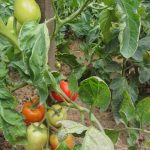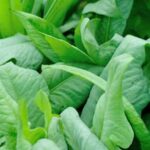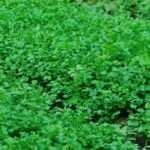Horse manure for vegetable gardens is a natural and effective way to nourish your plants and improve soil health. This organic fertilizer is rich in essential nutrients that can promote the growth of strong and healthy vegetables. In this article, we will explore the benefits of using horse manure in vegetable gardens, as well as how to properly prepare and apply it for optimal results.
When it comes to understanding horse manure, it is important to know not only what it is, but also its nutrient content. Horse manure is a valuable source of nitrogen, phosphorus, potassium, and other essential plant nutrients. These nutrients can help improve soil fertility and support the overall health and productivity of your vegetable garden.
In the following sections, we will delve into the process of preparing horse manure for use in vegetable gardens. Proper methods for composting and aging horse manure will be discussed to ensure that it is safe and beneficial for your plants. Additionally, we will explore how to safely and effectively apply horse manure to your vegetable garden for maximum benefit.
Understanding Horse Manure
Horse manure is a natural and organic fertilizer that can provide many benefits to vegetable gardens. It is rich in nutrients such as nitrogen, phosphorus, and potassium, which are essential for plant growth and development. In addition to these primary nutrients, horse manure also contains trace elements such as calcium, magnesium, and sulfur, which can help improve soil quality.
The nutrient content of horse manure can vary depending on factors such as the diet of the horses, the type of bedding used in their stalls, and how the manure is stored and aged. Fresh horse manure may contain high levels of ammonia and pathogens that can be harmful to plants, so it is important to compost and age the manure before using it in the garden.
Composting horse manure for at least six months will help break down harmful substances and allow beneficial microorganisms to develop.
Properly prepared horse manure can be a valuable source of organic matter and nutrients for vegetable gardens. It helps improve soil structure, water retention, and nutrient uptake by plants. When used in conjunction with other organic amendments such as compost or mulch, horse manure can contribute to healthy and productive vegetable crops.
| Benefit | Data |
|---|---|
| Nutrient Content | Nitrogen, phosphorus, potassium; trace elements like calcium, magnesium, sulfur |
| Composting Time | At least six months |
| Improvements | Soil structure, water retention, nutrient uptake by plants |
Preparing Horse Manure for Use
When it comes to using horse manure for vegetable gardens, proper preparation is key to ensure that it provides the best nutrients for your plants and minimize the risk of any potential hazards. Composting and aging horse manure is an essential step in utilizing it as a fertilizer, as it allows the manure to break down and become more stable for use in gardens. Here are some proper methods for preparing horse manure for use in vegetable gardens:
- Composting: Composting horse manure is essential to ensure that any harmful pathogens or bacteria are broken down before being used in vegetable gardens. To compost horse manure, it should be mixed with other organic materials such as straw, leaves, or kitchen scraps. This mixture should be turned regularly to ensure proper aeration and decomposition.
- Aging: In addition to composting, aging horse manure is also important to allow any excess ammonia and nitrogen to evaporate. Aged horse manure is less likely to burn plants and has a milder odor compared to fresh manure. The ideal aging period for horse manure is around 6 months to a year.
Properly composted and aged horse manure not only reduces the risk of potential plant damage but also ensures that the nutrients are readily available for your vegetable garden. It’s important to note that using fresh or improperly prepared horse manure can potentially harm your plants or introduce harmful pathogens into your garden soil.
Another important aspect of preparing horse manure for use in vegetable gardens is ensuring that it does not contain any residual medications or chemicals that may have been given to the horses. Organic certification standards require a withdrawal period from when horses receive medications until their manure can be considered safe for organic farming practices.
Therefore, if you are sourcing horse manure from local stables or farms, it’s crucial to inquire about the feeding and medication practices of the horses before using their manure in your vegetable garden.
Application
When it comes to applying horse manure to vegetable gardens, there are several important factors to consider in order to do so safely and effectively. Firstly, it is crucial to ensure that the horse manure has been properly composted and aged before application. This process helps to break down any harmful pathogens and reduce the risk of burning your plants with fresh manure.
Once the horse manure is ready for use, it should be spread evenly over the vegetable garden soil. It is recommended to apply a layer of around 1-2 inches thick, which can then be worked into the soil using a garden fork or tiller. This will help to ensure that the nutrients from the horse manure are well distributed and easily accessible to the plants’ roots.
It is also important to consider the timing of when to apply horse manure to your vegetable garden. Ideally, horse manure should be applied in the fall after harvesting and before planting in the spring. This allows ample time for the nutrients in the manure to integrate with the soil and become available for plant uptake. By following these guidelines for application, you can maximize the benefits of using horse manure in your vegetable garden while minimizing any potential risks.
Benefits of Horse Manure
When it comes to vegetable gardening, using horse manure as a fertilizer can offer numerous benefits. Here are some specific advantages of incorporating horse manure into your vegetable garden:
1. Nutrient-Rich Soil: Horse manure is packed with essential nutrients such as nitrogen, phosphorus, and potassium. These nutrients are vital for the healthy growth of vegetables, helping them to develop strong roots and produce bountiful yields.
2. Soil Conditioning: Horse manure helps improve soil structure by adding organic matter, enhancing its ability to retain moisture and nutrients. This results in healthier soil that promotes robust plant growth.
3. Natural Pest Control: The beneficial bacteria found in horse manure can help suppress harmful pathogens and pests in the soil, reducing the risk of plant diseases and infestations.
In addition to these advantages, using horse manure in vegetable gardens also promotes sustainability by recycling natural waste from horses while reducing the dependency on synthetic fertilizers. By composting and aging horse manure properly before application, gardeners can harness these benefits effectively while minimizing potential risks associated with fresh manure.
When considering the benefits of using horse manure for vegetable gardens, it’s important to recognize that this natural fertilizer offers more than just essential nutrients – it also contributes to overall soil health and long-term sustainability. By exploring the specific advantages outlined above, gardeners can make informed decisions about incorporating horse manure into their vegetable gardening practices.
Potential Risks
Risks of Contamination
While horse manure can be a highly beneficial source of nutrients for vegetable gardens, there are potential risks associated with its use. One of the main concerns is the risk of contamination from pathogens such as E. coli, salmonella, and parasites that may be present in the manure. These contaminants can pose a health risk if they come into contact with the vegetables or if the vegetables are not properly washed before consumption.
Precautions for Safe Use
To mitigate the risks of contamination, it is important to ensure that the horse manure is properly composted and aged before using it in vegetable gardens. Composting at high temperatures (above 130°F) for an extended period can help kill off harmful pathogens.
Additionally, allowing the manure to age for several months before application can further reduce the risk of contamination. It’s also essential to thoroughly wash all vegetables that have come into contact with horse manure before consuming them.
Environmental Considerations
In addition to potential health risks, there are also environmental considerations when using horse manure in vegetable gardens. Improper application or overuse of manure can lead to nutrient runoff, which may contribute to water pollution in nearby streams and rivers. To prevent this, it’s crucial to follow recommended application rates and guidelines for incorporating horse manure into the soil.
Overall, while there are potential risks associated with using horse manure in vegetable gardens, these risks can be effectively managed through proper composting, aging, and safe application practices. By taking appropriate precautions, gardeners can harness the benefits of horse manure as a valuable source of organic fertilizer for their vegetable crops while minimizing potential hazards.
Alternative Options
When it comes to fertilizing and amending soil in vegetable gardens, horse manure is not the only option available. There are plenty of other organic fertilizers and soil amendments that can provide the necessary nutrients for healthy plant growth. In this section, we will explore some alternative options to horse manure for vegetable gardens.
Compost
Compost is a popular choice for organic gardeners as it is a rich source of nutrients and improves soil structure. Composting kitchen scraps, yard waste, and other organic materials creates a nutrient-dense material that can be incorporated into the soil. Compost helps retain moisture in the soil, promotes healthy microbial activity, and provides essential nutrients for plant growth.
Manure From Other Animals
In addition to horse manure, manure from other animals such as cows, chickens, and rabbits can also be used as a fertilizer for vegetable gardens. However, it’s important to note that different types of manure have different nutrient profiles and should be aged or composted properly before use to mitigate the risk of burning plants or introducing pathogens.
Cover Crops
Cover crops are an excellent way to naturally enrich the soil with nutrients. Legumes like clover and vetch can fix nitrogen in the soil, while deep-rooted crops like daikon radish can help break up compacted soil and improve drainage. Cover crops also help suppress weeds and prevent erosion during the off-season.
While horse manure is an excellent choice for organic fertilization of vegetable gardens, these alternative options provide gardeners with a range of choices depending on availability, desired nutrient content, and specific needs of their plants. Whether using compost, other types of animal manure, or cover crops, each option offers unique benefits for improving soil health and supporting robust plant growth.
Conclusion
In conclusion, utilizing horse manure in vegetable gardens offers a plethora of benefits for soil health and plant growth. This organic fertilizer is rich in essential nutrients such as nitrogen, phosphorus, and potassium, making it an excellent choice for enhancing the productivity of vegetable crops. Additionally, when properly composted and aged, horse manure can provide a valuable source of organic matter that improves the overall soil structure.
When preparing horse manure for use in vegetable gardens, it is crucial to follow proper methods for composting and aging to ensure its safety and effectiveness. By allowing the manure to decompose over time, potential risks such as pathogens and weed seeds can be mitigated. When applying horse manure to vegetable gardens, it is important to do so in moderation to prevent nutrient imbalances and avoid potential issues with runoff or leaching.
While there are some potential risks associated with using horse manure in vegetable gardens, these can be effectively managed through proper handling and application practices. However, for those who prefer alternative options, there are a variety of other organic fertilizers and soil amendments available that can also support the health and productivity of vegetable crops. Ultimately, the careful use of horse manure in combination with other organic materials can lead to thriving vegetable gardens that produce bountiful harvests.
Frequently Asked Questions
What Plants Don’t Like Horse Manure?
Some plants do not like horse manure due to its high nitrogen content, which can be too strong for certain plants. Additionally, some plants may be sensitive to pathogens that can be present in fresh horse manure.
How Long Does Horse Manure Need to Sit Before Using in Garden?
Horse manure needs to sit for at least six months before using it in the garden. During this time, the composting process breaks down the manure into a nutrient-rich material that is safe and beneficial for plants.
Can You Put Too Much Horse Manure in Your Garden?
It is possible to put too much horse manure in your garden, which can result in an imbalance of nutrients and potentially burn the plants’ roots. It’s important to use horse manure in moderation and consider supplementing with other organic materials for a well-balanced soil amendment.

If you’re looking to get into vegetable gardening, or are just looking for some tips on how to make your current garden better, then you’ve come to the right place! My name is Ethel and I have been gardening for years. In this blog, I’m going to share with you some of my best tips on how to create a successful vegetable garden.





